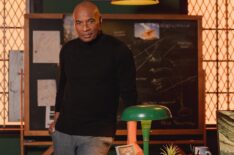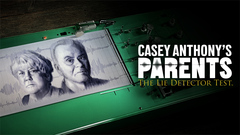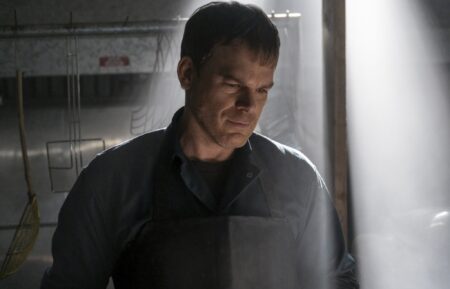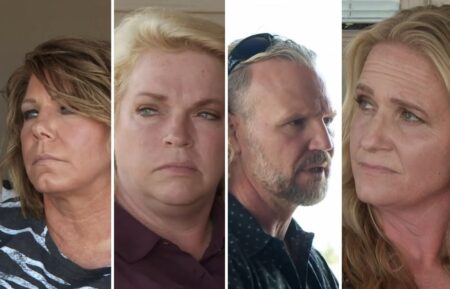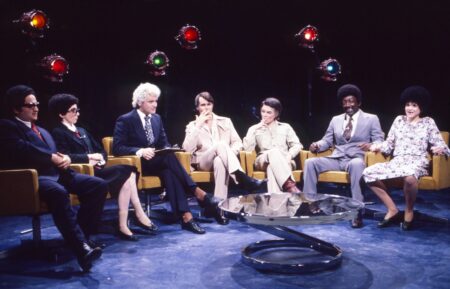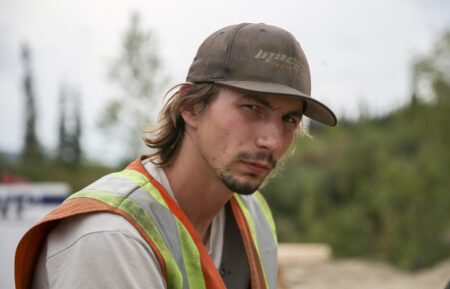Casey Anthony’s Parents Take Lie Detector Test in Explosive TV Special
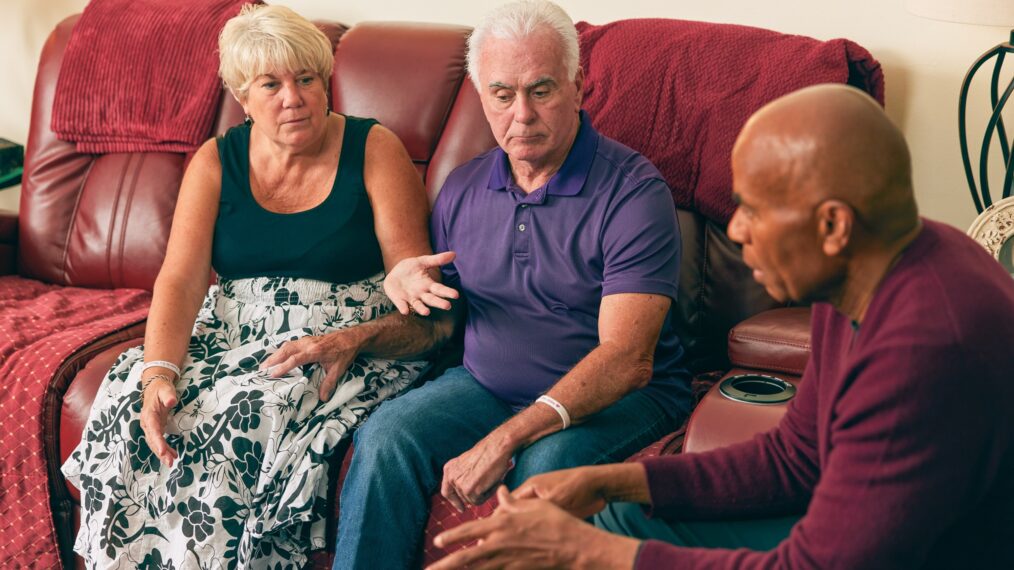
Q&A
Tony Harris has always been about getting answers. The longtime journalist and The Proof Is Out There host looked for just that when he sat down to interview Cindy and George Anthony during Casey Anthony’s Parents: The Lie Detector Test.
This two-hour special, simulcasting on A&E and Lifetime on January 4, explores the 2008 murder case of Caylee Anthony, which dominated headlines, tore at the heartstrings, and ripped apart a family. The two-year-old from Orlando went missing after being last seen on June 16, 2008. The five-month-long search ended when her remains, duct tape stretched over the jaw and skull, were found in woods close to her grandparents’ home. Casey, her mother, was charged and later acquitted for the two-year-old’s murder in 2011.
Over the years lingering questions have remained on what happened to Caylee with Casey and her parents sticking to their sides of the story. Now George and Cindy have decided to take a real-time polygraph test in response to Casey saying her father was to blame for her daughter’s death in three-part series, Casey Anthony: Where The Truth Lies.
Here Harris reflects on his time with George and Cindy and what may come after the special’s airing.
This is going to be such a headline-grabbing special. You’ve been in the industry for so long. What was your initial reaction to sitting down with George and Cindy and this polygraph test special?
Tony Harris: I’ll be frank with you. I had to dig into it a little bit. When this happened in 2008, I was working at CNN. It was also an election year so we were deep into John McCain and Barack Obama. Nancy Grace and the crew at Headline News were all over this story. By the time the trial happened in 2011, I was already in the Middle East working for Al Jazeera. So, the first thing I had to do was take a deep dive into the story. Once I did I saw an enormous family tragedy. That’s the piece that was compelling to me. The idea of maybe getting another opportunity to center on Caylee. Getting an opportunity to talk with George and Cindy about their lives since then. About, frankly, these shocking allegations coming from Casey. For me, it was a story about this family disintegration, dysfunction beyond these shocking allegations, and having the opportunity to recenter Caylee into the story that drew me to it.
What were your first impressions when you first met them with this sitdown?
Cindy was very warm. They were both viewers and fans of The Proof Is Out There. They had a sense of me, at least in the television way, how I conduct myself. I fully expected Cindy to do what I did on them, which was to do her research on me. At some point, I think they felt comfortable with me, so it was pretty easy to have a very difficult conversation in part because she knew my career and had a sense of my demeanor over the year of doing television. She knows how I conduct interviews and behave in difficult and trying situations. This is one of those. Cindy was very warm.
I don’t know how much you’ll see in the actual piece, but there was not only this mind-to-mind connection but a physical connection too. I think Cindy wanted me to hear the points she was making, so she would grab my arm or hand. At some point, I did the same thing because I figured this was a different way for us to communicate at different points of the discussion. It felt intimate, it felt close, it was all very up close. It was a small house, so you can’t escape. The other feeling is it’s kind of a memorial to that family’s loss and grief. I think George sees it a bit that way. I don’t think Cindy sees it that way. If you’re an outsider coming into that space, everywhere you turn there are reminders of the family that was and is no more. That was kind of sad quite frankly.
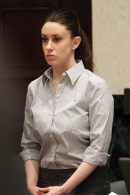
Casey Anthony at her murder trial in June 2011.
How much time did you get to spend with them?
I spent four days with them. You rarely get that amount of time, even with the true crime stuff. You rarely get that much time with those who are essentially the principle of the story. It was all very intense few days. I had a physical reaction after those days after. My kids were great at pulling me out of it. I was reminded how difficult it can be. To live in the life and space of a family’s grief.Something that the family has been dealing with since 2008. It all comes back to the surface and never really subsides once you get into the meat of it. All of the feelings came to the surface. If I’m going to do my job effectively, I have to be in those moments with them. At the end of it, it was difficult for those few days after.
You had to ask some very unnerving questions. We know you’re going to ask about the molestation allegations Casey made about her father. Tell me about those moments.
There are very difficult questions. The allegations are very pointed from Casey in the direction of her father. At certain points throughout the two hours, you will see that I’m pushing George. George Olivo, our highly trained and amazing examiner, pushes George as well. George got a thorough going over after this piece. I will tell you from my vantage point I had to say to George, “You have to defend yourself. These are very harsh allegations. So, if you have something to say in defense, you need to say it right now.”
There were a couple of moments we had to push George. I don’t know what we were pushing through. His hurt, dismay, review of the story, wondering if he should have/could have done anything differently. I don’t know what we were pushing through in those moments, but we had to hammer him a little bit. We had to go hard at him, but he was working through something. Lingering grief. Whatever culpability he felt, he was struggling at moments to share what was in his head and heart truthfully.
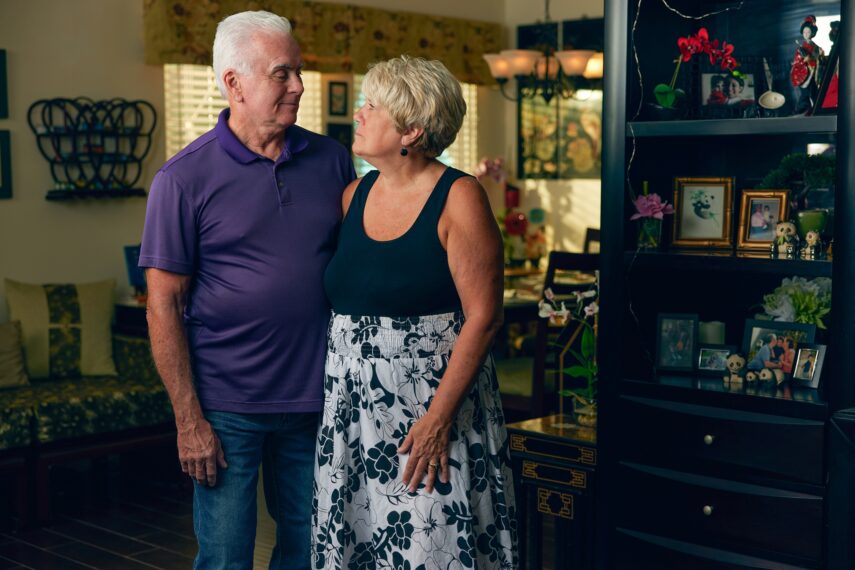
A&E
There has been so much reported about this story over the years. Do you find there will be some new information to come from this?
Absolutely. One of the first calls I had with Matt Sprouse and Erica Hanson, who produced the piece, I think all of us wanted to move the story forward. I know it’s a polygraph test and all kinds of questions and in some areas it can be viewed as controversial, but for us, we were looking for greater clarity. And this polygraph test delivers greater clarity on all the essential questions tied to this case. So if anyone has ever been interested in this story, we know how widespread it is. I guarantee you will come away with greater clarity than you had going into this.
Was your time spent for the sitdown before or after the polygraph was administered?
Before. We did all of our interviews before the polygraph. At the point at which the audience gets to see the results. That is happening in real-time. There are no time skips, no time jumps at all. The polygraph exam is in real-time. You get her reactions in real-time. When George Olivo is sharing the results it is all real-time. The interview was done for the exam.
Was there an effort to reach out to Casey for perspective?
Yes, there was contact with Casey. I believe it was an email. Not a phone call. It’s suffice to say Casey was allowed to talk about this case and to this point had declined.
What do you think people will think after watching this?
I think they are going to get a deeper understanding of how families can go off the rails. How tragedies like this can destroy family life. I think the other thing for me is it makes you want to cling even closer to the important people in your life. Your children, spouse, It will probably make spouses work even harder at keeping their family tightknit…You take a look at this story and over the years can see the cracks where George, Cindy, and Casey needed to discuss the issues they were having in their lives, and for whatever reason, that didn’t happen in a way that could have prevented what happened with this tragedy and the loss of young Caylee.
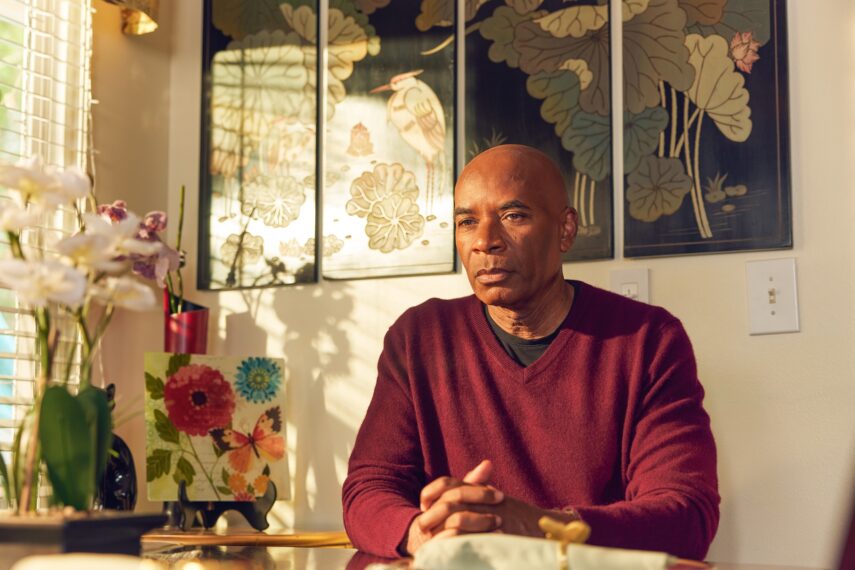
A&E
Do you change your stance on things given the answers they provide?
Not in a material way. After doing my research I came to some thoughts that were pretty baked in. If you’ve done the work for as long as I have, you know what warning signs are. You know what red flags and warning signs are ignored. I got a real sense of the family dynamics and so I had a pretty good idea in my mind how I thought all of this played out. I won’t tell you what those are, but I’ll tell you I didn’t have a major shift in the way I thought about the case going in.
The thing that was surprising to me at the level, and intensity of the strife and pain in that relationship. You will see moments in this piece where Cindy is losing it on camera. You’ve seen it before. That just points out how everpresent this loss and the story of this loss is. The loss of a daughter and the loss of a granddaughter is on their lives on a daily basis. It’s difficult to see. It’s difficult to witness. In terms of anything I learned, I think the results are going to be surprising for a lot of people who follow this story closely.
Afterward, how do you think George and Cindy felt it went?
It was very emotional. For them, they understood the moment they agreed to a polygraph test exam that the stakes were extraordinary here. They understood depending on how the results turned out, that it may open up a whole new line of inquiry to this case. Not to suggest it could lead to charges or anything of that sort, but it would certainly lead to a whole new line of inquiry with people coming from all over with questions for them. I think they feel they were given fairness. That’s all you can deliver from my point of view is fairness and an opportunity for them to share their story. I think they feel they got that. I’m anxious to see peoples’ reactions to the two hours. It’s quite frankly some of the most compelling television I’ve ever worked on. I think anyone who cares about this story in any way will find plenty of takeaways.
Casey Anthony’s Parents: The Lie Detector Test, January 4, 9/8c, A&E and Lifetime

